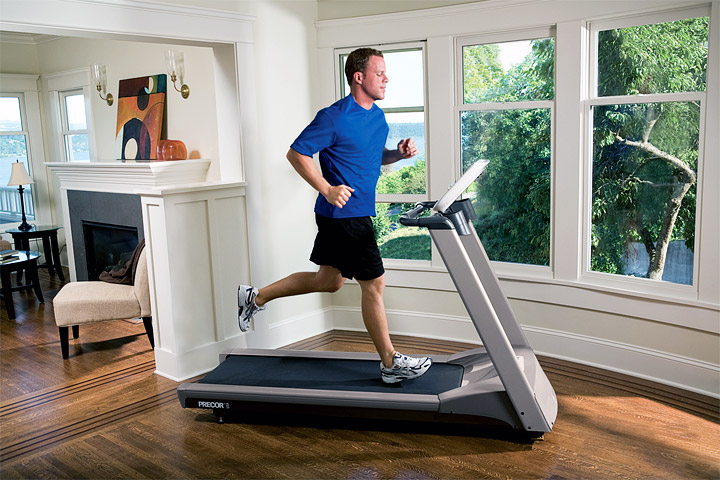
Did you lose the genetic lottery? Don’t worry. The science of the perfect muscle building workout can add new size and mass to any body type and at any age.
If you’re not seeing results in the gym, there are a lot of things you can tweak: your diet, your exercise schedule, and the types of workouts you do, to name a few. But genetics is also a big factor. We’ve all had that thought on bad days: Maybe I’m just not cut out to succeed at this.
There are genes for aerobic fitness and for muscular power, for adaptability to training, and for the size and shape of your body. Bottom line is:
We each draw something different in the genetic lottery, but we can always improve on what we’ve got.
Where Genetics Plays a Role
Don’t bother asking whether a trait is determined by “nature or nurture.” For any athletic trait, Roth says, the answer is both. Scientists look at it a different way: how much of the difference between you and other people is because of your genes? That’s the idea behind the concept called heritability.
Heritability estimates are always sort of rough, because they depend on the population that the researchers studied. If you study aerobic fitness in just sedentary people, you’ll find that the difference between them is mainly due to their DNA. In that case, heritability will be high, close to 100%. But if you include athletes, you’ll see that a lot of the difference between the fittest and the least fit person is due to training, leaving a much smaller percentage—about 50%—that you can chalk up to genes.

That’s why you shouldn’t get too discouraged by traits that have a high heritability: something can be extremely heritable but still subject to change. Obesity, for example, is 70% heritable, meaning genes play a large role—but we also know you can change that with diet and exercise.
Here are some ballpark figures on heritability of athletic traits. The higher the heritability, the more you can blame genes, rather than training, for the difference between a couch potato and a star athlete.
- Aerobic fitness: about 40-50% heritable
- Strength and muscle mass: about 50-60% heritable
- Your mix of “slow twitch” and “fast twitch” muscle fibers (basically, whether your muscles are better at endurance or sprinting): about 45% heritable
- Height: about 80% heritable
- Competing in sports, at all: 66% heritable.
Trainability itself has a genetic factor, too. If you and your gym buddy follow the exact same program, starting at the exact same fitness level, one of you might end up stronger than the other.
Here’s one more complicating, but hopeful factor: Athletic talent has many components. Maybe you can’t run as fast as one of your soccer teammates, but you have a better eye for where the ball is going to be and a more powerful kick once you’re there. Or maybe your cardio endurance isn’t great, but you have long legs and an efficient running stride. So don’t give up, even if you’re convinced you got a few dud genes.
How Much Genes Matter
Most of us aren’t trying to compete with world class athletes, so genetics means less to us than it does to them. Some people hit the genetic lottery and get to play Life on Easy difficulty.
In a sense, we have it easier than elites because our bar is lower. Most of us aren’t trying to win a marathon, but to finish—almost anybody can train to do that. Or we want our team to beat the rival intramural softball (or hockey or quidditch) team, where nobody has the time or money to train as their full-time job. For weekend athletes, improvements can come easily from adding a cross-training day, attending more practices for the experience and team cohesiveness, and getting better at strategy.

If you won the genetic lottery, you may grow bigger muscles or see results sooner than others at your gym, but one elite’s genetic advantage over another may be tiny, but at the highest levels, that tiny advantage can mean the difference between being a gold medalist versus watching the games from home because you came in fifth at the Olympic trials. Elites also capitalize on their genetics with training, and there we have something in common. “For recreational athletes, it’s far more likely that training and experience and practice will be the primary driver of performance,” Roth says.
Why There’s No Simple Genetic Test
Genetics is hard. Out of 20,000 human genes, Roth points out, only hundreds have been studied, and only dozens carefully studied, for their role in exercise. Just because we know a gene exists doesn’t mean we understand how it works, or what turns it on.
The main thing we do know is that the role of genetics is complicated. Take height, for example. In 2009, a study published in the European Journal of Human Genetics found that you can predict a person’s height better bymeasuring their parents than by testing and tallying the 54 genes known to influence height.
So even though there are genetic tests available for fitness-related genes, they’re not very useful. One of those genes is called ACE, and certain versions are associated with aerobic fitness in endurance athletes. Another is ACTN3, which is associated with muscular power and sprinting. Evidence is mixed, Roth says, on whether a result on one of these tests means much. “It might contribute 1% or 2% to overall performance,” he says. Based on the results, companies will recommend certain sports as being good matches for you, but “the science just isn’t there to support that.”
He also doesn’t recommend doing this testing on children. Since the outcome of the test says so little about what sports a kid will be good at, it’s not fair to steer them to one sport or another, or push them to compete at a higher level, on the basis of a few nucleotides. “If you’re an adult, doing it just for kicks, have a fine time,” he says—but don’t change your training habits because a genetic test told you to.
How to Tell What You’re Suited For
Since tests won’t tell you much, the best ways to tell where your talents lie are to look at your family, and your past experiences.
For example, there’s an adorable kid who shows up on my Instagram all the time. I’ve never seen him run, but I’d bet anything he’s going to be super fast when he grows up: his dad is Olympic track runner Adam Goucher, and his mom is fellow Olympian Kara Goucher, who just happened to win a half-marathon last week and a marathon last month. Kara Goucher’s teammate at the London Olympics, Shalane Flanagan, is the daughter of two elite runners; her mother once held the women’s marathon world record. You get the idea.

You can also get a big hint about your genetics by trusting your experiences. For example, I struggled for years with long-distance running. I ran a pretty average time in 5K (three-mile) races, but was miserably slow at anything longer than that. My speedwork times were always really good, so I dropped the marathons from my schedule and focused on short distances. It turns out I’m way better at those. When I entered a 2K race (just over a mile), I won a medal for being the fastest woman in my age group.
Training programs take from weeks to months to show results, so pretty soon you should have a sense of how well a given approach is working for you. Still, don’t be too quick to blame genetics for all your difficulties. Sometimes you need to work harder, but Roth points out that ambitious athletes are also prone to overtraining, where you struggle because you’re wearing yourself out.
Winning the genetic lottery doesn’t mean you’re guaranteed to have a six pack. And having “bad” genetics doesn’t mean you can’t reach your goals.

If you like this post, please give it a five star review and help me share it on facebook!




Leave a Reply